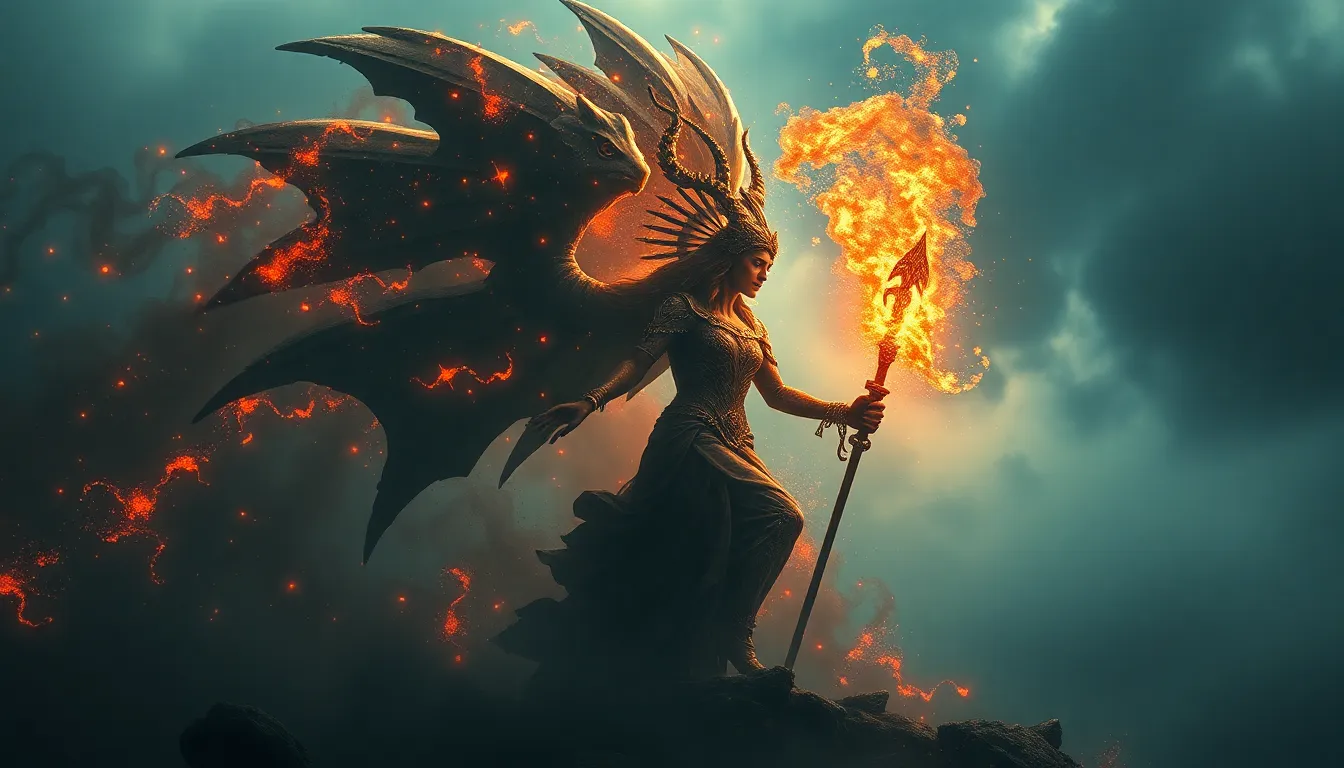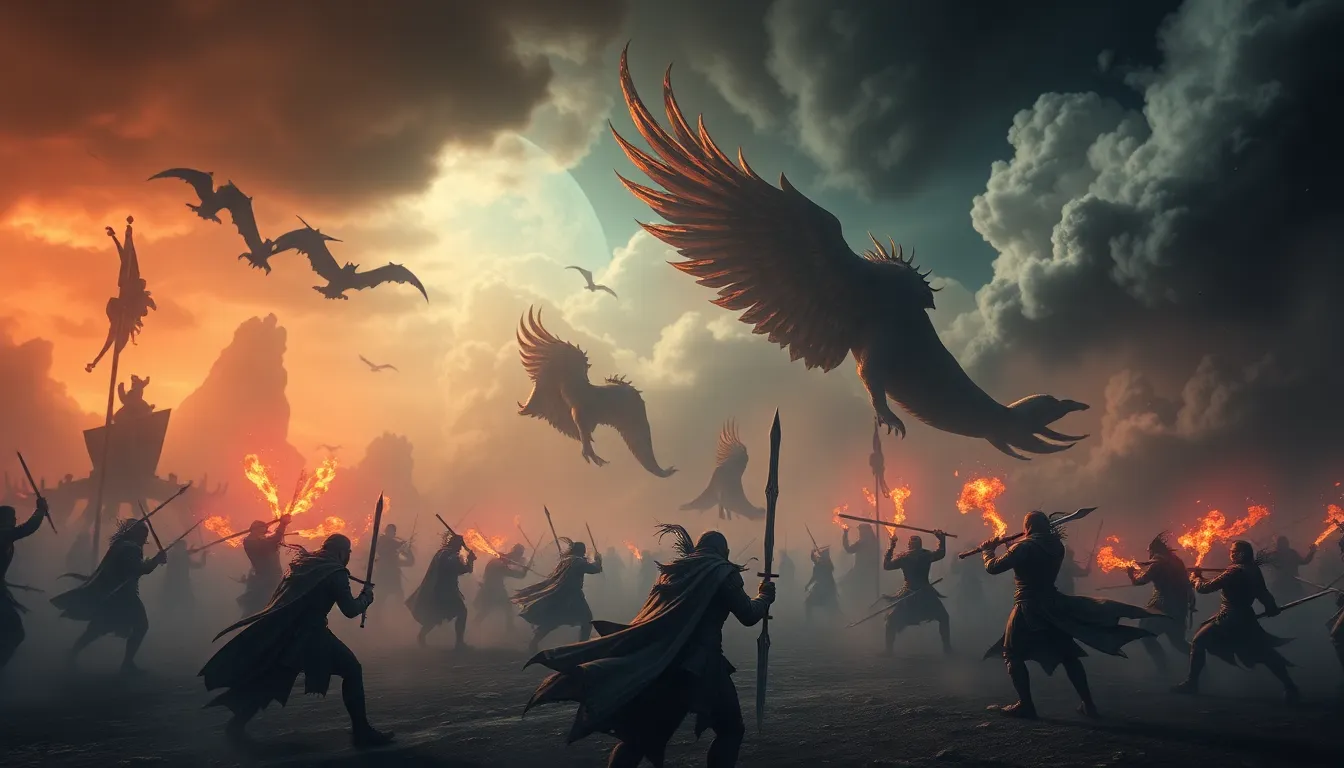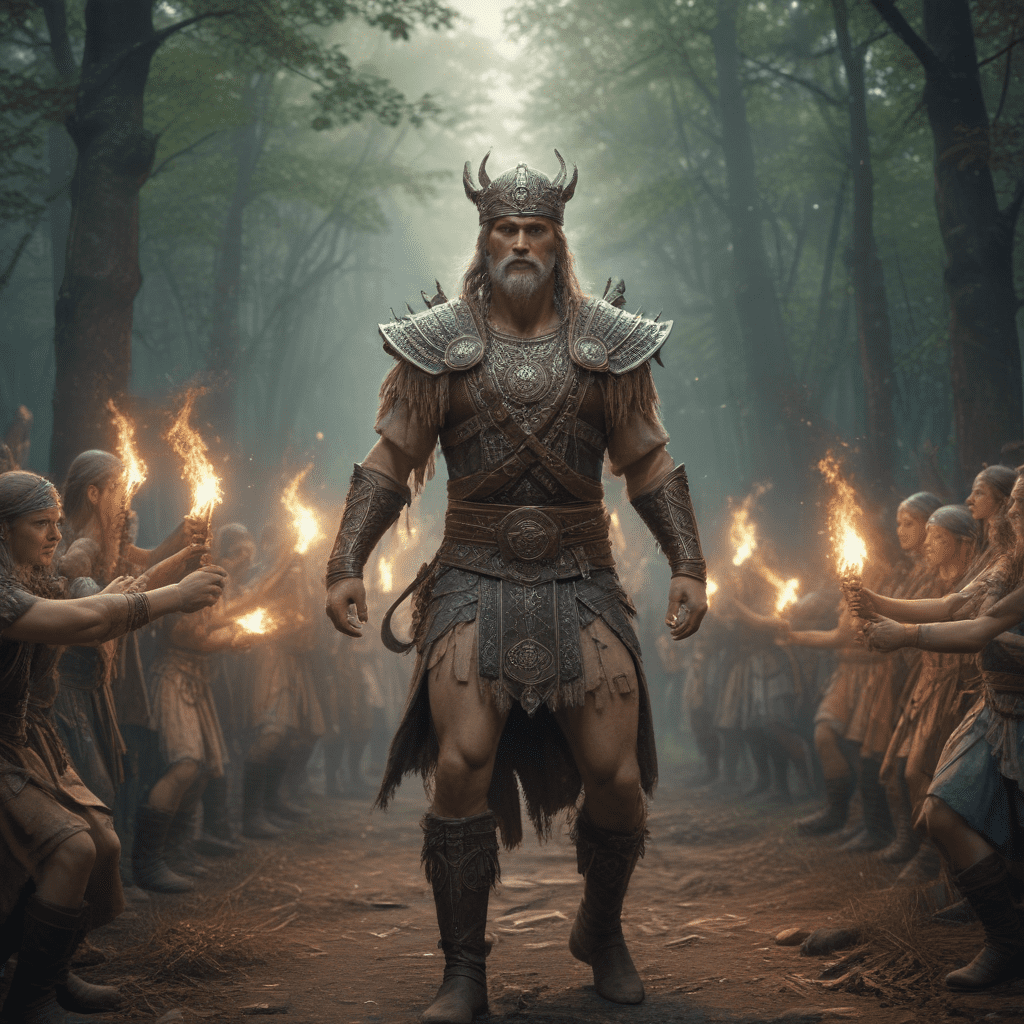The Transformative Power of Myth: How Stories Shape Our Identity
I. Introduction
Myths have been an integral part of human culture since the dawn of civilization. They are not merely stories; they are foundational narratives that provide insights into the values, beliefs, and experiences of a culture. A myth can be defined as a traditional story that serves to explain a natural or social phenomenon, often involving supernatural beings or events. This article explores the transformative power of myths and how they influence both personal and collective identity.
II. The Nature of Myths
A. Characteristics of Myths: Structure, Themes, and Functions
Myths typically share certain characteristics that define their structure and themes. They often involve:
- Universal Themes: Myths frequently explore fundamental human concerns such as creation, death, and morality.
- Symbolic Language: They utilize symbols and archetypes to convey deeper meanings.
- Heroic Journeys: Many myths follow a hero’s journey, illustrating growth and transformation.
Additionally, myths serve various functions, including explaining the unexplainable, providing moral guidance, and reinforcing social norms.
B. Types of Myths: Creation Myths, Hero Myths, and Cultural Myths
Myths can be categorized into several types:
- Creation Myths: These explain how the world and humanity came into existence.
- Hero Myths: These focus on the adventures and trials of heroes, often symbolizing human resilience.
- Cultural Myths: These reflect the values and beliefs of a specific culture or society.
C. Myths vs. Fables and Folklore: Understanding the Distinctions
While myths, fables, and folklore are related, they serve different purposes. Myths are sacred narratives that explain the origins of the world and humanity, whereas fables are moral tales that typically feature animals as characters. Folklore encompasses a broader range of traditional beliefs, customs, and stories passed down through generations.
III. Historical Context of Myths
A. The Role of Myths in Ancient Civilizations
In ancient civilizations, myths played a crucial role in shaping societies. They provided explanations for natural phenomena, established social order, and reinforced cultural identity. For instance, the Greek myths not only entertained but also educated citizens about their gods and the consequences of hubris.
B. Evolution of Myths Through History
As societies evolved, so did their myths. New stories emerged, reflecting changing values and beliefs. For example, the transition from polytheistic to monotheistic traditions in various cultures led to reinterpretations of existing myths.
C. Myths as a Reflection of Societal Values and Norms
Myths often mirror the societal values and norms of their time. They can reveal what a culture prioritizes, such as bravery, loyalty, or wisdom, and can serve as a critique of societal issues.
IV. Psychological Impact of Myths
A. Carl Jung’s Concept of Archetypes and the Collective Unconscious
Carl Jung proposed that myths reflect archetypes present in the collective unconscious. These archetypes are universal symbols and themes that resonate across cultures, influencing individual behavior and societal norms.
B. Myths as Tools for Personal Growth and Self-Discovery
Engaging with myths can facilitate personal growth. They provide frameworks for understanding one’s life experiences and can guide individuals in their journey of self-discovery.
C. The Role of Storytelling in Shaping Individual Identity
Storytelling, rooted in myth, is a powerful means of shaping individual identity. People often see themselves in the narratives they encounter, allowing these stories to inform their self-perception and life choices.
V. Myths in Different Cultures
A. Comparative Analysis of Mythologies Across Cultures (e.g., Greek, Norse, Indigenous)
Mythologies vary significantly across cultures, each offering unique insights into human existence. For example, Greek mythology emphasizes heroism and tragedy, while Norse mythology often highlights themes of fate and the inevitability of death. Indigenous myths frequently center around harmony with nature and communal values.
B. How Different Societies Interpret Similar Themes and Archetypes
Despite their differences, many cultures share similar themes and archetypes, such as the hero’s journey or the trickster figure. These commonalities suggest that certain narratives resonate universally, transcending cultural boundaries.
C. The Impact of Globalization on the Sharing and Evolution of Myths
Globalization has facilitated the sharing of myths across cultures, leading to reinterpretations and adaptations. This exchange can enrich cultural narratives but also raises questions about authenticity and cultural appropriation.
VI. Myths and Modern Society
A. The Relevance of Ancient Myths in Contemporary Life
Ancient myths continue to hold relevance in modern society. They provide frameworks for understanding contemporary issues and can inspire social change.
B. How Modern Media (Films, Books, and Games) Reinterpret Traditional Myths
Modern media often reinterprets traditional myths, making them accessible to contemporary audiences. For instance, films like “Wonder Woman” and “Thor” draw on mythological figures while exploring modern themes of empowerment and identity.
C. The Role of Myths in Shaping Modern Social Movements and Identities
Social movements often utilize myths to communicate their messages and rally support. The narratives surrounding figures like Martin Luther King Jr. have become modern myths that inspire activism and social justice.
VII. The Educational Value of Myths
A. Incorporating Myths in Education: Benefits and Challenges
Integrating myths into educational curricula can enhance learning by providing students with cultural context and moral lessons. However, challenges include ensuring accurate representation and avoiding cultural appropriation.
B. Myths as a Means to Teach Moral Lessons and Cultural Heritage
Myths often convey moral lessons, making them valuable tools for teaching ethics and cultural heritage. They can foster critical thinking and empathy among learners.
C. Case Studies: Programs That Successfully Utilize Myths in Learning
Several educational programs have successfully integrated myths into their curricula. For example, the “Mythology in the Classroom” initiative uses storytelling and creative projects to engage students and enhance their understanding of cultural narratives.
VIII. Challenges in Myth Interpretation
A. Misinterpretation and Appropriation of Myths in Modern Contexts
In contemporary contexts, myths can be misinterpreted or appropriated, leading to distorted narratives that do not honor their cultural origins.
B. The Risk of Oversimplification or Distortion of Traditional Narratives
Oversimplifying myths can strip them of their depth and meaning, reducing complex narratives to mere entertainment without understanding their cultural significance.
C. Balancing Respect for Cultural Origins with Contemporary Relevance
It is essential to balance respect for the cultural origins of myths with their contemporary relevance. Engaging with myths thoughtfully can foster understanding while honoring their roots.
IX. Personal Narratives and Identity Formation
A. How Individuals Create Personal Myths to Shape Their Identity
Individuals often create personal myths—stories that help them make sense of their experiences and shape their identities. These narratives can empower individuals and provide a sense of purpose.
B. The Influence of Family Stories and Cultural Myths on Self-Perception
Family stories and cultural myths play a significant role in shaping self-perception. They provide a framework for understanding one’s place in the world and can foster a sense of belonging.
C. The Therapeutic Use of Storytelling in Personal Development
Storytelling is increasingly recognized as a therapeutic tool. It allows individuals to articulate their experiences, confront challenges, and promote healing and personal growth.
X. Conclusion
In summary, myths hold transformative power in shaping identities—both personal and collective. They provide frameworks for understanding human experiences, reinforce cultural values, and offer insights into our place in the world. As we navigate our modern lives, engaging with myths can enrich our understanding of ourselves and others, reminding us of the universal narratives that connect us all. The ongoing importance of myths in shaping identities calls for a deeper exploration and appreciation of these powerful stories.



